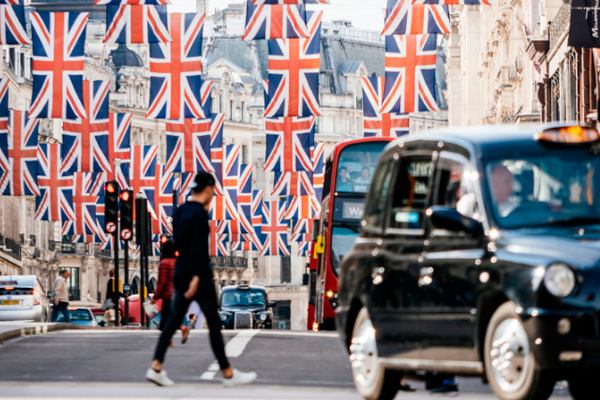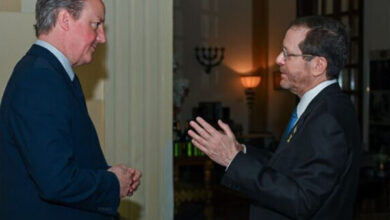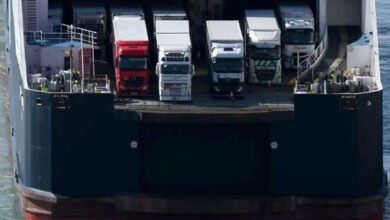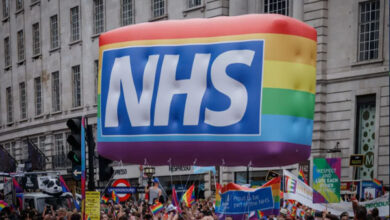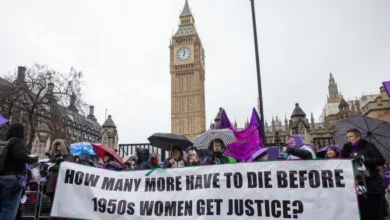Although the Met has stated that the technology will not be used to target protesters or activists, campaigners have stated that its use is ‘extremely worrying’
It has been suggested that the Metropolitan police are utilising the coronation to carry out the most extensive live face recognition operation that the United Kingdom has ever seen.
The agency announced its intention to utilise the contentious technology on Wednesday. The technology, which scans faces and matches them against a list of individuals police seek for suspected crimes and might detect convicted terrorists mingling among the crowds, scans faces and matches them against a list of persons police want for alleged crimes.
A vast security operation will be in place on Saturday in preparation for the coronation of King Charles at Westminster Abbey, which will be preceded by a parade through the heart of London. It is anticipated that hundreds of thousands of people will be present for the event.
The news came at the same time as the government had just passed a bill giving police greater powers to crack down on protests. This law was enacted into law only a few days before the high-profile ceremonial event.
Campaigners are concerned that the equipment that scans people’s faces might be used against demonstrators, as there is evidence that police have done this in the past.
The Metropolitan Police Department stated that they would not use the technology to suppress legal demonstration or to target activists. However, campaign groups do not believe what they are saying. “It is not used to identify people who are linked to, or have been convicted of, being involved in protest activity,” stated the largest force in Britain. “It is used to identify people who are linked to, or have been linked to, criminal activity.”
According to a prominent academic authority, the amount of people whose faces will be scanned during this operation would make it the largest deployment of live facial recognition (LFR) in the history of the United Kingdom.
Pete Fusey, who advises the biometrics and surveillance camera commissioner on human rights and ethnics and who also led an independent evaluation of the Met’s prior trials of LFR in 2018-19, stated that the scope of the proposed use of LFR was unprecedented. The review was conducted in 2018-19.
The Notting Hill funfair in 2017 had the largest LFR deployment to yet, with a total of 100,000 attendees having their faces scanned.
According to Fussey, “A surveillance deployment for the coronation would likely be the largest live facial recognition operation ever conducted by the MPS, and probably the largest ever seen in Europe.” Fussey noted that this prediction was based on the likelihood that a surveillance deployment for the coronation would occur.
“After looking into the figures that were presented in their documents, we determined that the total number of’recognition opportunities’ (people who were accessible to be scanned) for the 10 operations that took place between 2016 and 2019 was 180,000.
“A single event, the Notting Hill funfair in 2017, was responsible for the occurrence of 101,000 of these. Since 2019, deployments of facial recognition technology have been centred mostly around Newham and the West End, and, as far as I am aware, they have not been directed at huge events with a significant number of attendees.
Although its use by the government in the UK has been limited thus far, the police believe that LFR has the potential to be a game-changing tool in the fight against crime. Activists are fighting to stop its usage.
The fact that LFR would be utilised at the coronation is quite concerning, according to Emmanuelle Andrews, who works for the advocacy group Liberty. The LFR is a mechanism that contributes to a dystopian society and erodes all of our rights and liberties.
She said that the police had used it in the past against demonstrators, particularly against people who opposed the trafficking of armaments and, reportedly, in 2022 against those who opposed a measure that would give the police more powers.
Andrews stated, “We have already seen a huge crackdown on protest ahead of the coronation, with new measures brought in this week to further restrict the ways in which people can make their voices heard.” These new restrictions were brought in to further restrict the ways in which people can make their voices heard ahead of the coronation.
“This new development is extremely concerning because it makes it likely that facial recognition will be used to monitor anyone who wants to exercise their right to protest,”
During a media briefing, the Met revealed its intention to make use of LFR during the coronation, which is anticipated to draw massive crowds and tens of millions of people around the world watching the event on television.
According to the deputy assistant commissioner of the Metropolitan Police Department, Ade Adelekan, “This is to pick up the people who are wanted for an offence or who have a warrant out against their name.”
A later statement issued by the Met stated that it would also look for “those under relevant offender management programmes in order to keep the public safe.” This is likely a reference to convicted terrorists, some of whom police and probation officers have visited in the lead up to the coronation, according to the Guardian, to verify, for instance, that they are living where they claim to be.
“Live facial recognition is an authoritarian mass surveillance tool that turns the public into walking ID cards,” claimed Big Brother Watch, an organisation that advocates for individuals’ right to privacy.
“The coronation ought not to be used to justify the rollout of this discriminatory and hazardous technology,” the author writes. As part of their festivities, the hundreds of thousands of innocent people who are attending this historic occasion must not be subjected to biometric police identity checks.
In the same way that the introduction of fingerprinting was a significant step forward for law enforcement, the use of face recognition that is linked to databases of persons the police are interested in might be the next great leap for law enforcement. The police have been working on this for years. The intelligence community has a significant amount of interest as well.
The government and certain members of the Conservative Party are putting pressure on the Metropolitan Police to tighten down on protests.
Adelekan made the following statement: “What we will not stand for… is anyone committing criminal acts in the name of protest.” We are going to descend quite quickly.”
When asked if the police would regard someone on the road with an anti-monarchy banner as meriting removal, Commander Karen Findlay, who was in command of the police operation, responded with “No.”
When asked if it is permissible to protest directly on the path, Adelekan responded, “Protesting is lawful,” and added that someone holding a sign did not constitute as major disturbance, which is prohibited by law.
In a subsequent statement, the Met appeared to adopt a more confrontational tone, saying things like, “Our tolerance for any disruption, whether through protest or otherwise, will be low.” We shall take decisive action against anyone who is focused on bringing our event into disrepute.
On Tuesday evening, a guy asked to talk to a soldier at Buckingham Palace before throwing shotgun cartridges at the palace. The police have stated that they are continuing their investigation into the incident. The individual was taken into custody on charges of allegedly possessing a lock knife as well as ammunition, however nobody was hurt in the incident.

